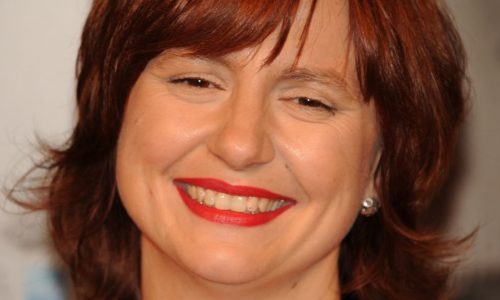
It might have been the 56th BFI London Film Festival, but it was the first under the guidance of the new Festival Director Clare Stewart, who placed her mark on the event with a few changes – most significantly, making the event shorter.
But by using more screens, squeezing the festival into fewer days didn’t mean lower ticket sales; in fact, with a 12% increase on last year, the festival had its highest ever audience, selling nearly 150,000 tickets over 12 days. But casualties of the more compact festival are the true cinephiles – and indeed critics – who spend day after day hopping from one screening to the next; the more films there are being shown at once, the more clashes there are in the schedules, the fewer films an individual can enjoy.
But while the event was shorter than in previous years, as well as spreading the screenings more widely across more London cinemas, two films – Tim Burton’s opening night animation Frankenweenie and the Rolling Stones documentary Crossfire Hurricane – were screened simultaneously at cinemas across the country, allowing thousands of people across the UK to participate in London’s biggest film event.
Stewart’s other major change was to programme the 228 feature films into categories relating to the type of film they were, rather than where they were from. So the old strands were replaced with love, debate, dare, laugh, thrill, cult, journeys, sonic and family.
Categorising films in such a simplistic way can often be a recipe for confusion, throwing up anomalies, where features straddle two areas or don’t fit neatly into any, and it also resulted in some films being selected, as if to make up the numbers in an under-represented category, even if they were arguably not worthy of a festival of the status of London. And if it’s British films you’re interested in, they’re there in abundance, but scattered across the categories, so harder to find. The only films to escape the often apparently random labels were the Gala screenings and those in the official competition strands.
Indeed, in its continuing attempt to boost its status internationally, trying to compete with the prestige of Cannes and the sheer size of Toronto among others, the London Film Festival strengthened its competitive strand this year, giving more clarity to those films in contention for the Best Film, Best First Film, Best Documentary and Best British Newcomer awards. Essentially, in the Best Film category, some of the higher profile features in the programme were nominated, but as if to illustrate the difficulty London has in building its reputation, very few of the bigger names turned up.
There was no Jake Gyllenhaal for End of Watch, no John Simm for Everyday, no Elle Fanning for Ginger and Rosa, no Gael Garcia Bernal for No, no Sir Salman Rushdie for Midnight’s Children, no Woody Harrelson, Sam Rockwell or Colin Farrell for Seven Psychopaths. The eventual winner of the London Star for Best Film, Rust and Bone, was represented by the lead actor Matthias Schoenaerts, as its director Jacques Audiard, being honoured by London’s judges for the second time in the competition’s four year history, failed to make the journey from neighbouring France, again.
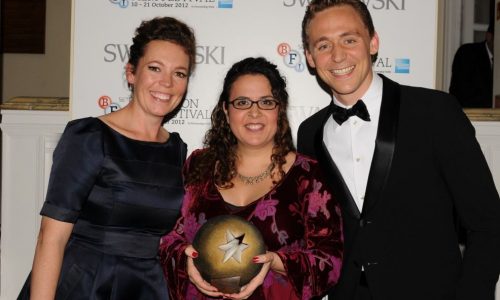
The category with the best turnout was for Best British Newcomer, with most of those behind the camera and starring in films including Broken, Shell, The Comedian, Wasteland and My Brother the Devil turning up. The award went to Sally El Hosaini, the writer and director of My Brother the Devil, who – having missed her own premiere through illness, discharged herself from hospital to ensure that she made it to the awards. “I came here because everyone involved in the film was telling me how well it had been received so I had to get myself out of my hospital bed and drag myself here,” she enthused, on collecting her award. Like many of the films honoured on the night, it had previously received awards at other festivals around the world, but for El Hosaini, bringing her debut feature home after taking six years to get it made made her efforts worth it. “It was a joy to be able to share it with UK, because nobody would understand it like London and the UK.”
However, with the likes actor Tom Hiddleston, actress Olivia Coleman and writer Sir David Hare attending, the bigger names were on the juries than on the nominees list, and even most of them would be largely unknown outside their native Britain.
But both in terms of the selection of the biggest films and the failure of many of their stars to grace the red carpets even of their own premieres, the festival as a whole seemed to lack the star power of recent years, which saw the likes of George Clooney and Madonna promoting their films and making it onto the front pages. this year, the festival as a whole secured comparatively little press coverage away from the film-review pages.
Some of those missing on awards night, such as John Simm, Elle Fanning and Marion Cotillard, did at least turn up for their premieres, as did some other high-profile figures, including Ben Affleck at the Gala screening of his latest impressive outing as director, Argo, Bill Murray promoting Hyde Park on Hudson and Dustin Hoffman directing his cast of British veterans along the Quartet red carpet, but they were in the minority.
That is not to detract from the quality of most of the films that were screened, but with such highly regarded films as The Master, already doing the rounds of other festivals but omitted from London’s line-up, this year’s festival is perhaps as noteworthy for the films – and the stars – that were missing, as for those that could be seen.
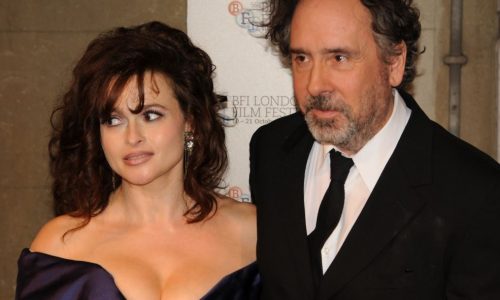
Then there was the couple you couldn’t get away from – not that you’d want to, of course; Tim Burton’s Frankenweenie opened the festival, his partner Helena Bonham Carter’s Great Expectations closed it, and the pair were honoured individually with BFI Fellowships, at the start and the end of the awards ceremony.
One element of the festival left in place by Stewart was the surprise film – the hit-and-miss screening for which people buy tickets for nothing more than a promise. This year, they were lucky to get a hit – Toronto’s surprise winner, Silver Linings Playbook, with director David O Russell and star Bradley Cooper in attendance for a Q&A. The festival’s Keynote address also retained its place in the programme. This year it saw the movie mogul Harvey Weinstein outlining his vision of the industry, including a vociferous attack on internet piracy.
In addition to such audience question and answer sessions and the regimented press conferences for the biggest features, many of the directors of the smaller films mingled more informally with journalists over regular afternoon teas, although the shorter festival provided fewer opportunities and meant shorter interviews than in previous years. Nevertheless, it’s these events which can often be the most revealing; it’s getting up close to the directors where you can truly feel their passion.
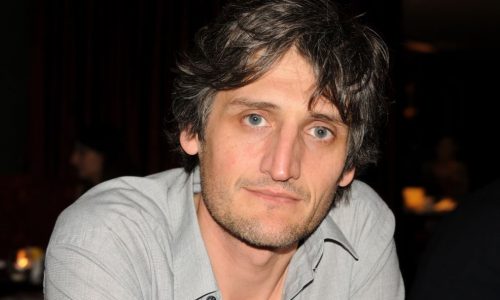
First time Australian director Boyd Hicklin was showing his cricket comedy Save Your Legs! abroad for the first time. Until now, he’s built his career directing commercials and sporting documentaries, including one of the same name, about an amateur cricket team, the Abbotsford Anglers, who managed to secure themselves a tour of India. He joined the team and took a friend along to film it. “It was a great adventure and I thought I’d put it to bed but people kept asking questions. ‘What are you going to do with that? You should turn it into a feature film.’ Then I met the writer Brendan Cowell, who was a mad cricket fan. He became the missing link to turn it into a narrative feature.” Cowell ended up taking on one of the main supporting roles in what became a good-natured bromance comedy about a cricket-fan who can’t bring himself to grow up, while all those around him are gradually settling down. “There’s not many men who don’t still cling on to that notion that they could’ve played for their country,” he smiles. “Even if it’s just darts.”
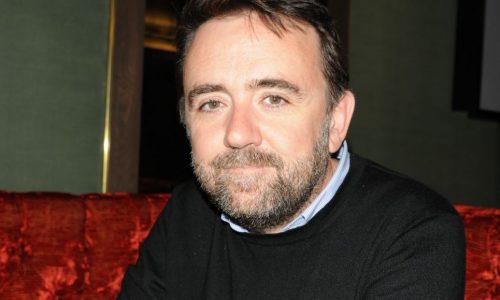
One of the most topical films of the festival, featuring in the Debate section of the festival, came from another Australian, the politically aware film-maker Robert Connolly, whose previous film Balibo was also showcased at the LFF. This time, with Underground, he explores the formative years of Julian Assange. At a time when Britain has just refused to extradite Gary McKinnon to the US, on charges of hacking into the Pentagon, and while Assange himself is still seeking refuge in Ecuador’s embassy in London, Connolly’s film, while set twenty years ago, has perhaps more resonance now than ever. “I was curious about what made the man,” he explains. “Before the internet, he was already part of a group of three hackers, hacking all over the world, including the US military on the eve of the first Gulf War.” Connolly believes that the young Assange was interested to discover how the US was moving its resources from the Cold War towards the Middle East. “His political compass was forming but it took fifteen years before he could make sense of it,” he explains, referring to the founding of his WikiLeaks website. Connolly argues that in the modern world, individuals in democracies are demanding more accountability and transparency from their government. “There’s a movement afoot that’s bigger than WikiLeaks and crushing Julian Assange won’t halt that.”
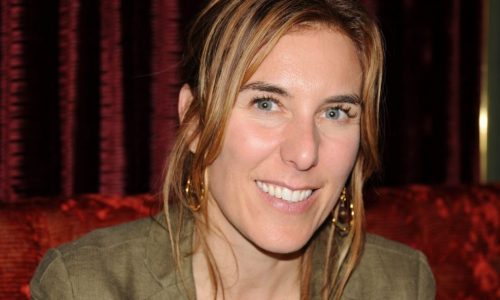
Other equally thought provoking films could be found in the documentary competition, where Amy Berg’s West of Memphis uncovered the story of three youths who were jailed for what the authorities in Arkansas believed was a satanic triple child murder, even though they had no links to the occult. “It shows how wrong it can get,” Berg notes. “It was a brutal child murder and everyone reacted based on just their feelings. There was a hysterical frenzy.” After a lengthy campaign to expose what she describes as the “massive miscarriage of justice” – among the campaigners, The Hobbit’s Peter Jackson – the boys were later released from prison, but not exonerated. Berg continues, “I asked the prosecutor what they had done to rehabilitate them, if they were standing by the conviction, to make sure they didn’t kill anyone else. ‘They just grew up,’ was the response.” Shaking her head, Berg bemoans the political nature of the American judicial system. “Why is it so difficult for officials to admit they made a mistake?”
But while there’s often more to say about the smaller films, most of the attention falls on the blockbusters. The award winners, such as Rust and Bone and Beasts of the Southern Wild lived up to expectations. Other films to note included Michael Winterbottom’s Everyday, filmed over five years for a more authentic study of a prison inmate’s children growing up, Thomas Vinterberg’s well received thriller The Hunt and François Ozon’s highly accomplished In The House, a wordy and witty intellectual study of a precocious student and his frustrated teacher. But at a festival as broad as this, it’s almost unfair to pick out ones to watch – not least because those highlighted by the awards and Galas were selected by the festival’s programmer’s rather than critics and audiences, and many won’t ever be seen again on the UK’s cinema screens.
Those are the beauties of a public-orientated film festival – more the opportunity to see some of the best features from around the world, that otherwise wouldn’t get seen on the big screen, and the privilege to see and hear the film-makers in person, than just the chance to see big films before their general release.
So, while there were gaps in the schedule and a shortage of the biggest stars, the quality of the films remained high, leaving much of the discussion to centre on the organisation rather than the creative aspects of the festival. It was brave, but understandable, for Clare Stewart to make changes to a much loved and trusted institution, to put her mark on it and show who’s boss. Some of her alterations to the London Film Festival worked better than others; in festival terms, the jury is out. But politically, it’s difficult to change things straight back if they haven’t quite worked out, so her second LFF might actually be more telling than her first.
